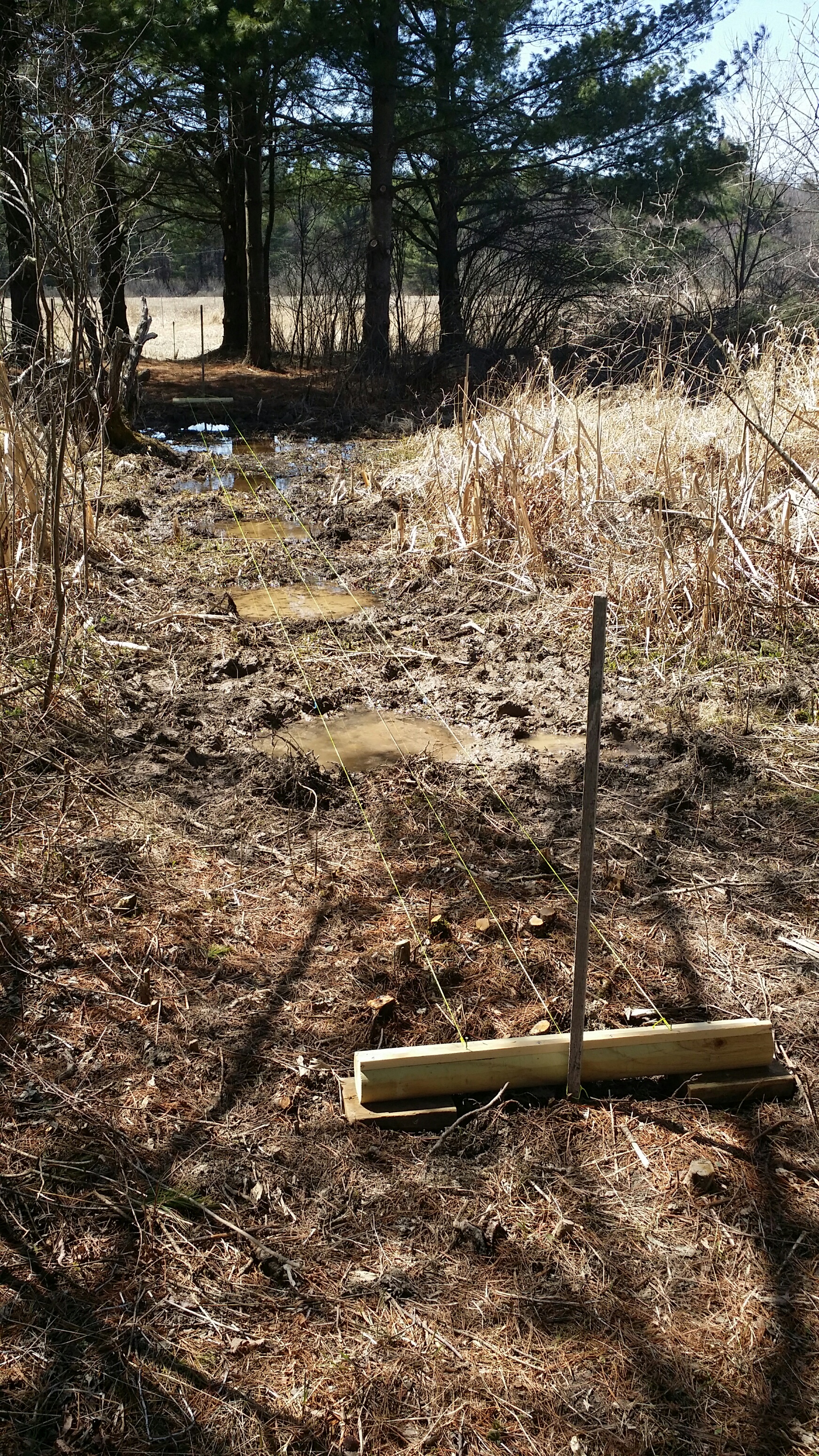It doesn’t take the earth long to fill in a bare landscape. When we began building our house in 1980 farming activity ended in a two acre area that had been part of a thirty five acre tract, a certified wetland, it turned out. In this picture it is in the foreground behind the flowering Shadbush. The reason farming discontinued was to create a buffer next to our driveway and house. Plus, it was illegal to farm the wetland.
Over the years a Pine hammock grew on the sandy ridges between cattail sections, springs, and creeks. In 1997 we dug a pond and around that time stopped renting the far field for farming, managing it since as a wildlife preserve.
This is the same view today:
this is a picture taken mowing the preserve in the Fall and looking back at the Pine Hammock:
This past winter I started mapping out three boardwalks to cross wetlands, a total run of 144’, the two longest runs of 56’ and 64’ connecting to the wildlife preserve and the short 24’ section a curving trail through the Pine hammock. I had an eager assistant.
I decided to use treated landscape timbers ($5 each) for the posts, cross ties, and long rails.
The immediate challenge was: how do you set posts where there is water and sloppy mud? This entailed a lot of pondering. Finally, this is what I came up with:
The bucket, with some water in it, kept the frame buoyant. The distance side- to- side was the distance between the vertical posts. Short and pointed set up posts would fit in place, their edge centerline meeting distance markers on the strings. Once in position and leveled, four lengths of rebar got pushed through the frame holes to keep it stable so that the permanent posts could register in position and be hammered by sledge. 2-3’ into the clay.
To cut them to the exact height I determined that only hand sawing would give the proper result. In many cases it was just a few inches above the water. Leveling a stick between pairs of posts and using a level on the saw plate (and getting thoroughly soaked and muddy) I cut 30 posts.
Here’s the first run completed:
The long rails and treads were assembled on a platform. It was a mistake, I came to understand, to complete installing all of the treads. Too heavy! The sections had to be moved a few hundred yards on a garden cart and then lifted into position. A couple of times I got trapped under them, my boots too stuck in the muck to lift them out.
After the first walkway was completed I wised up and just installed two treads per section.
Now only 130 more treads to go, but that’s okay: I have an able assistant!


















Leave a Reply